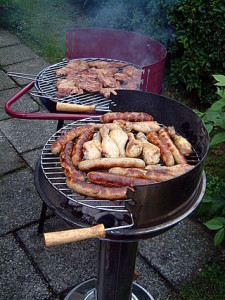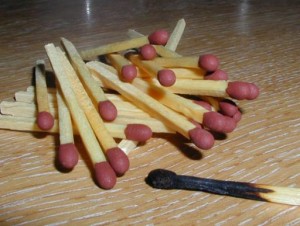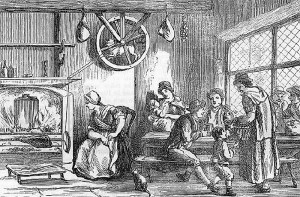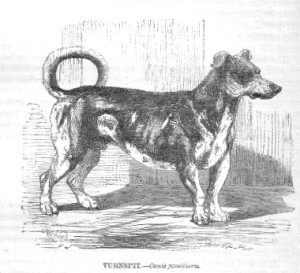Vanessa here,
Vegans, Vegetarians, and PETA look away from this post.
As we get ready to celebrate the 4th of July, our nation’s Independence Day, we should take the time to thank a service man or veteran for their duty, for choosing to protect America so we might enjoy freedom and wonderfully barbequed hamburgers and hot dogs.

The English during our period of the Regency were not particularly joyous of America’s Independence. They still brooded over their loss in our Revolutionary War and impressed our men into service to fight their other wars, but I digress.
Yet, we can still trace our love of fire roasted meats to them.
Fire roasting was (and is) common around the world and a forerunner to our barbecue cooking method. From cooking meat in a hot pit in the ground to using wooden frames to hold the meat, people of all cultures and all nations figured out fire-cooked meat was yummy. The English were quite serious and well regarded for their meat cooking.
Pehr Kalm, a traveler to England on his way to America (1748) noted:
“Roast meat, Stek, is the Englishman’s delice and principal dish. It is not however always roasted, Stekt, to the same hardness as with us in Sweden. The English roasts, stekarne, are particularly remarkable for two things.
- All English meat, whether it is of Ox, Calf, Sheep, or Swine, has a fatness and a delicious taste,either because of the excellent pasture, betet, which consist of such nourishing and sweet-scented kinds of hay as there are in this country, where the cultivation of meadows has been brought to such high perfection, or some way of fattening the cattle known to the butchers alone, or, for some other reason.
- The Englishmen understand almost better than any other people the art of properly roasting a joint, konsten, at val steka en stek, which also is not to be wondered at ; because the art of cooking as practised by most Englishmen does not extend much beyond roast beef and plum pudding, stek.”
We can thank John Walker, an English chemist who in 1826 invented the friction match. He took a stick of wood and dipped it in a paste formed from potassium chlorate and sulfur to make a match that lit when struck on an abrasive surface. As you light up the coals tomorrow, think John Walker, unless you own one of those fancy auto-lighting-gas grills or a lighter.

One thing I am glad did not become the norm is the Turnspit Dog. Look at the picture below and see the dog on the circular track pinned to the wall. No, your eyes are working properly. The doggie is hung up like kitchen pots or a ladle, just another kitchen utensil aiding the cooking of foods in an English kitchen.

Can you imagine? “Cook, is the meat done?”
“No milord, Lassie has another mile to go.”
Turnspit dogs were short animals trained to run on a treadmill like cage so that spit meat cooked evenly. These kitchen helpers were small, low-bodied creatures with short front legs. They often had grey and white fur or reddish brown.

The dogs, commonly called Kitchen dogs, Turnspit dogs or Vernepator Cur were very sturdy and capable of turning the spit wheel for hours. Now that is some serious cooking if you have to train pets to help. Lucky for us and the greater good, this practice died off by the late 1850’s.
So light up those grills tomorrow, be thankful of our independence, and give a special patty to your pet pouch. Happy Fourth of July.
Source: Kalm’s Account of His Visit to England, 1758 http://www.archive.org/stream/cu31924028059693/cu31924028059693_djvu.txt
Originally posted 2014-07-03 10:00:00.
Comments are closed.